
The future of global trade: Can an alternate trade bloc of emerging economies have a global impact?
Deepak Kumar Amid the uncertain global trade scenarios, which have magnified further following the ascension of Donald Trump as the US President, an alternate multilateral trade deal among ten major economies could stimulate global trade and offer myriad opportunities for their collective economic development. The trade bloc comprising of middle-income economies such as China, Brazil, India, Indonesia, Mexico, and South Africa; along with some major high-income countries such as Japan, Australia, New Zealand and UK could turn out to be a strategic departure from the regionally-focused trade blocs, and therefore could help to bring about some semblance of trade-dignity in the international trade arena. Last week, India’s Chief Economic Adviser to the Union Government, Arvind Subramanian along with Commerce Secretary Rita Teotia ...
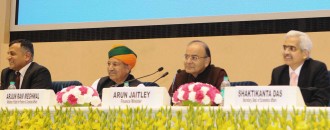
Protectionist stance will shrink global growth, warns Jaitley
The Dollar Business Bureau Finance Minister Arun Jaitely on Thursday cautioned the world about adopting US President Donald Trump-influenced trade protectionist stance and said such a move will translate into inefficient economies and contracted GDP growth across the world. Speaking at the ASSOCHAM annual meeting in New Delhi, Jaitley said the world has witnessed a sluggish growth for the last few years and such a move will only complicate the global economies scenarios even further. “Developed countries have turned protectionist...If it has impact on trade, movement of goods and people, (it) could make economies more inefficient and reduce GDP,” he said. Jaitley had presented rather a calculated Union Budget, which came in the backdrop of rising global crude prices, raising risks of inflation, in turn affecting ...

India to capture world markets to sustain 8-10% growth
The Dollar Business Bureau Observing that India has been ‘slower’ than other nations in entering into free trade agreements (FTAs), Arvind Panagariya, Vice Chairman of NITI Aayog said that the country will need to capture some of the international markets if it has to sustain a 8-10 percent rate of growth in the coming 20-25 years. “On FTAs, India has been surely slower than other nations,” Panagariya said at a discussion organised by the Asia Society Policy Institute in New York on Wednesday. “I just don't see that if India wants to try to sustain a growth rate of 8-10 per cent over a period of 20-25 years, it can be done without actually capturing some of the world markets,” he said. He further ...
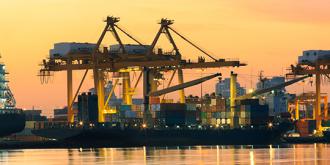
Connectivity, trade infra key to enhance India-ASEAN ties
The Dollar Business Bureau Connectivity and trade infrastructure are the key factors that can further boost India’s economic relationship with ASEAN countries, a senior government official said. “There is still huge potential to boost the economic tie. Singapore is India’s largest investment partner. It is good in transport, innovation, etc. Malaysia and Thailand are good in logistics and other sectors. India can collaborate with these countries,” said Ambassador Anil Wadhwa, Secretary (East), Ministry of External Affairs (MEA). His statement comes at a time when India’s foreign trade is facing challenge after the Trans-Pacific Partnership (TPP) agreement between 12 countries of the Pacific Rim, which accounts for more than 40% of the global trade. Experts say that the 12-nation trade bloc would ...
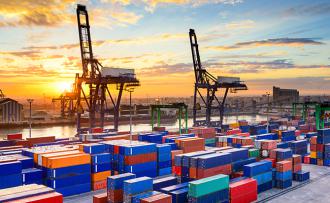
TPP, RCEP should forge agreements for better trade balance: Industry
Deepak Kumar | The Dollar Business Expressing concern over the impact of the Trans-Pacific Partnership (TPP) agreement on India’s exports, an industry body has said that the TPP and the Regional Comprehensive Economic Partnership (RCEP) should evolve into complimentary agreements to ensure trade balance in the Asia-Pacific region. “The TPP accord will dismantle trade barriers, reduce transaction costs, promote ease of doing business and possibly benefit consumers with lower prices and more choice in member countries,” ASSOCHAM said in a communication addressed to Finance Minister Arun Jaitley and Commerce Minister Nirmala Sitharaman. The industry body said the TPP bloc is likely to establish trade rules that could further put “burden of compliance on India’s manufacturing and services standards for access to the markets of ...
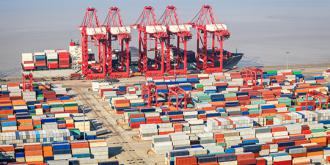
TPP pact likely to hit Indias foreign trade
Deepak Kumar | The Dollar Business As the United States, Canada, Japan and nine Pacific Rim nations join the Trans-Pacific Partnership (TPP), Indian exports bodies have asked the government to expedite free trade agreements (FTAs) with various countries to balance the global trade. Earlier this month, 12 countries agreed to allow preferential trade between them under the Trans-Pacific Partnership framework. Though these countries are yet to ratify the agreement, the new trade bloc can become a challenge for India which aims to increase its goods and services exports to $900 billion by 2020. India already has free trade agreements with some of the TPP members. “To counter TPP, India will need to come up with an effective FTA (free trade agreements) ...
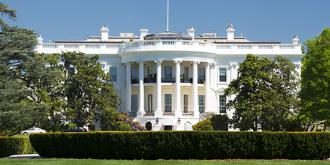
TPP would pressure on China to increase standards: US
Source: PTI The multi-nation Trans-Pacific Partnership (TPP) accounting for 40% of the world economy would put pressure on China to raise its environmental and labour standards, the White House has said. “There's no denying that this does put pressure on China to raise environmental standards, to raise labour standards, and to incorporate the kind of intellectual property protections that are included in the Trans-Pacific Partnership agreement," White House Press Secretary Josh Earnest said. His remarks come a day after 12 countries reached agreement on the Trans-Pacific Partnership following grueling Atlanta negotiations. TPP does put a lot of pressure on China that typically likes to see their own influence inside of Asia, and by raising economic standards in the Asia Pacific, the ...

India must get more integrated with South East Asian countries & others
The Dollar Business Bureau Tariff reduction impacts of the proposed Trans-Pacific Partnership (TPP) agreement, in terms of reduction in market access opportunities, will be relatively more on South American non-TPP countries as compared to non-TPP countries of the Association of South East Asian Nations. This is because ASEAN economies are relatively more Integrated through their production networks, said a report. Therefore, India should get more and more integrated to ASEAN +5 (including Australia, China, Japan, New Zealand and South Korea) production networks so as to mitigate the negative impacts of TPP (and another mega regional: Trans-Atlantic Trade and Investment Partnership (TTIP) on its market access. At the same time, this integration to ASEAN+5 production networks should balance India’s need for new employment generation with that of ...


